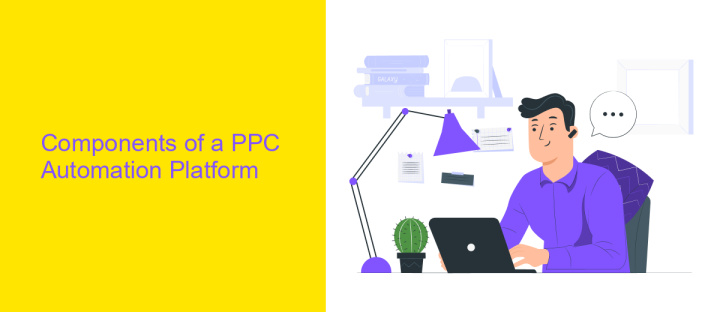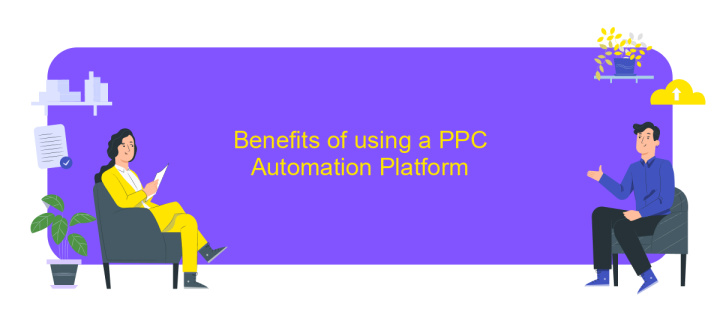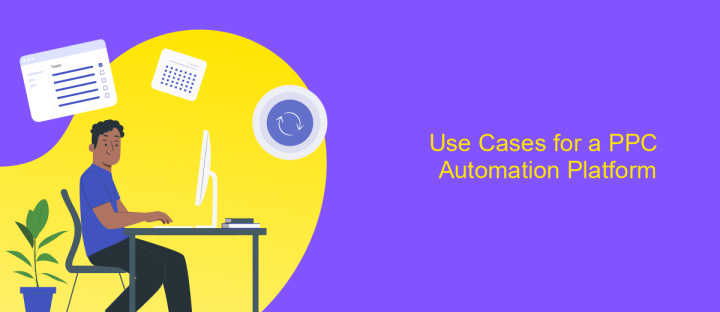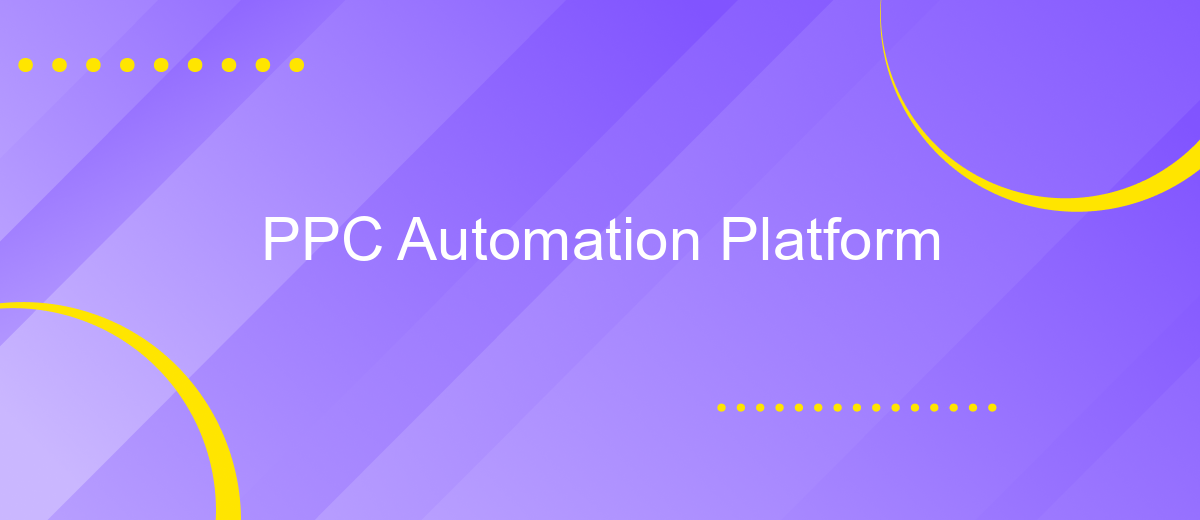PPC Automation Platform
In the rapidly evolving digital marketing landscape, PPC automation platforms have emerged as indispensable tools for businesses aiming to optimize their online advertising efforts. By leveraging advanced algorithms and machine learning, these platforms streamline campaign management, enhance targeting precision, and maximize ROI. This article explores the key features and benefits of PPC automation platforms, highlighting how they revolutionize the way marketers approach pay-per-click advertising in today's competitive market.
Why implement a PPC Automation Platform?
Implementing a PPC automation platform can significantly enhance your advertising strategy by streamlining processes and improving efficiency. These platforms are designed to handle repetitive tasks, allowing marketers to focus on more strategic activities. By automating bids, ads, and keyword management, businesses can achieve better performance with less manual intervention.
- Save time by automating routine tasks, freeing up resources for strategic planning.
- Improve accuracy and reduce human error with data-driven decision-making.
- Optimize ad spend by automatically adjusting bids based on performance metrics.
- Gain insights through advanced analytics and reporting features.
- Enhance scalability by managing multiple campaigns across various platforms efficiently.
Incorporating a PPC automation platform into your marketing toolkit not only boosts productivity but also enhances campaign effectiveness. By leveraging automation, businesses can stay competitive in the fast-paced digital landscape, ensuring their advertising efforts are both cost-effective and impactful. This strategic move ultimately leads to higher ROI and sustained growth.
Components of a PPC Automation Platform

A PPC Automation Platform comprises several essential components that streamline and optimize pay-per-click advertising campaigns. One of the primary components is the campaign management module, which allows users to create, modify, and monitor multiple campaigns across various advertising channels. This module often includes features like automated bidding strategies, budget management, and performance tracking, ensuring that campaigns are both cost-effective and successful. Additionally, the platform may incorporate advanced analytics tools that provide insights into campaign performance, helping marketers make informed decisions and adjust strategies in real-time.
Another crucial component is the integration capability, which enables seamless connectivity with other marketing tools and platforms. Services like ApiX-Drive facilitate these integrations by connecting the PPC Automation Platform with CRM systems, data analytics tools, and other third-party applications. This integration ensures that data flows smoothly between systems, enhancing the efficiency and effectiveness of marketing efforts. Furthermore, the platform may include a reporting module that generates detailed reports, offering a comprehensive view of campaign metrics and ROI, thus empowering marketers to optimize their strategies continuously.
Benefits of using a PPC Automation Platform

Implementing a PPC Automation Platform can significantly enhance the efficiency and effectiveness of your advertising campaigns. By automating repetitive tasks, marketers can focus on strategic planning and creative development, leading to more impactful campaigns. Automation tools streamline processes such as bid management, ad scheduling, and keyword optimization, which not only saves time but also reduces the risk of human error.
- Time Savings: Automate routine tasks to focus on strategy and creativity.
- Improved Accuracy: Minimize errors with precise, data-driven adjustments.
- Scalability: Easily manage multiple campaigns across various platforms.
- Cost Efficiency: Optimize bids and budgets for better ROI.
- Data-Driven Insights: Access real-time analytics for informed decision-making.
Incorporating a PPC Automation Platform into your marketing strategy not only optimizes performance but also empowers teams to make data-driven decisions swiftly. The ability to scale campaigns efficiently across different channels ensures that businesses remain competitive in an ever-evolving digital landscape. Ultimately, automation fosters a more agile and responsive marketing approach, essential for achieving sustained growth and success.
Use Cases for a PPC Automation Platform

Pay-per-click (PPC) automation platforms are transforming the landscape of digital advertising by streamlining and optimizing campaign management. These platforms empower marketers to efficiently manage multiple campaigns across various channels, saving time and resources while maximizing return on investment. By automating repetitive tasks, marketers can focus on strategic decision-making and creative processes.
One of the primary use cases for PPC automation platforms is bid management. Automated systems can adjust bids in real-time based on performance data and predefined rules, ensuring optimal ad placement and cost-efficiency. Additionally, these platforms can assist in keyword management, identifying high-performing keywords and suggesting new ones to enhance campaign performance.
- Automated ad creation and testing, enabling rapid deployment and A/B testing of ad variations.
- Performance monitoring and reporting, providing insights through dashboards and alerts.
- Budget management, ensuring spending aligns with campaign goals and limits.
- Audience targeting and segmentation, refining strategies to reach the most relevant audience.
In summary, PPC automation platforms offer a comprehensive suite of tools that enhance the efficiency and effectiveness of digital advertising campaigns. By leveraging automation, marketers can achieve better results with less manual effort, ultimately driving business growth and success in a competitive digital landscape.


Considerations before Implementing a PPC Automation Platform
Before implementing a PPC automation platform, it's crucial to evaluate your current advertising strategy and goals. Determine whether automation aligns with your business objectives and if it can enhance your existing processes. Assess the complexity of your campaigns and decide if automation can handle the intricacies or if manual intervention will still be necessary. Moreover, consider the learning curve associated with the platform; ensure your team is prepared to adapt to new tools and workflows.
Integration capabilities are another vital consideration. Ensure that the platform can seamlessly integrate with your existing systems, such as CRM and analytics tools, to provide a unified view of your marketing efforts. Services like ApiX-Drive can facilitate these integrations, allowing for smooth data transfer and synchronization. Additionally, evaluate the platform’s support and resources, ensuring that adequate training and customer service are available. Finally, consider the cost implications and weigh them against the potential benefits to ensure a worthwhile investment.
FAQ
What is PPC Automation and how does it work?
How can PPC Automation benefit my business?
What are some common features of a PPC Automation Platform?
How do I integrate a PPC Automation Platform with my existing tools?
Is PPC Automation suitable for small businesses?
Routine tasks take a lot of time from employees? Do they burn out, do not have enough working day for the main duties and important things? Do you understand that the only way out of this situation in modern realities is automation? Try Apix-Drive for free and make sure that the online connector in 5 minutes of setting up integration will remove a significant part of the routine from your life and free up time for you and your employees.

